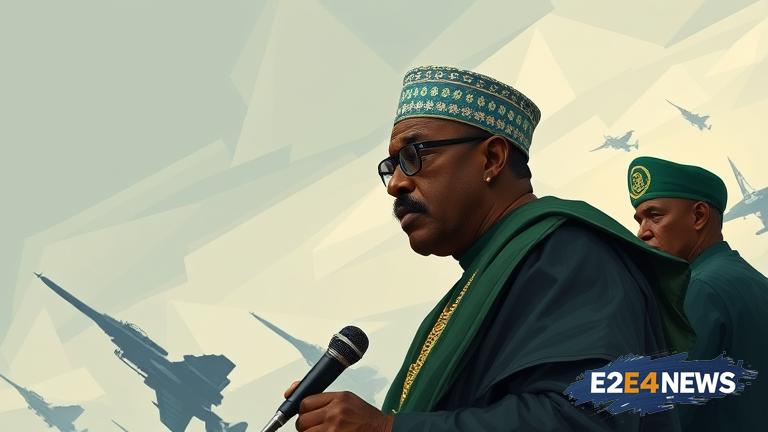In a bold move to redefine Africa’s security landscape, Nigerian President Bola Tinubu has called for the adoption of a new defence doctrine. This innovative approach aims to bolster the continent’s defence capabilities, fostering a safer and more stable environment for African nations. The proposed doctrine emphasizes the importance of cooperation, strategic planning, and effective resource allocation. By leveraging the collective strengths of African countries, the doctrine seeks to create a robust defence system that can effectively counter emerging threats. Tinubu’s vision for a unified African defence strategy has garnered significant attention, with many experts hailing it as a timely and necessary initiative. The new doctrine is expected to address the complexities of modern warfare, including terrorism, cyber threats, and transnational crime. Furthermore, it will prioritize the development of indigenous defence industries, promoting self-reliance and reducing dependence on foreign arms. The doctrine’s emphasis on cooperation will also facilitate the sharing of intelligence, best practices, and expertise among African nations. This collaborative approach will enable the continent to respond more effectively to security challenges, minimizing the risk of conflict and promoting sustainable peace. Tinubu’s proposal has been welcomed by various stakeholders, including defence experts, policymakers, and civil society organizations. The African Union has also expressed support for the initiative, recognizing the need for a more coordinated and effective defence strategy. As the continent continues to grapple with numerous security challenges, the adoption of a new defence doctrine is seen as a crucial step towards achieving lasting peace and stability. The doctrine’s implementation will require careful planning, coordination, and commitment from African nations, but its potential benefits are substantial. By strengthening Africa’s defence capabilities, the doctrine can help to prevent conflicts, protect citizens, and promote economic development. In addition, it will enhance the continent’s global standing, enabling African nations to play a more prominent role in international affairs. The new defence doctrine is also expected to address the issue of defence spending, promoting more efficient and effective allocation of resources. This will enable African countries to optimize their defence budgets, reducing waste and ensuring that resources are utilized to maximum effect. Moreover, the doctrine will prioritize the development of defence infrastructure, including military bases, training facilities, and logistics networks. This will enhance the continent’s defence capabilities, enabling African nations to respond more rapidly and effectively to security threats. In conclusion, Tinubu’s proposal for a new defence doctrine has the potential to transform Africa’s security landscape, promoting a safer, more stable, and more prosperous continent. As the initiative gains momentum, it is essential that African nations work together to ensure its successful implementation, reaping the benefits of a more coordinated and effective defence strategy.
